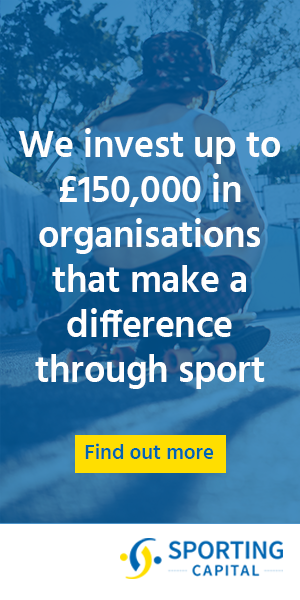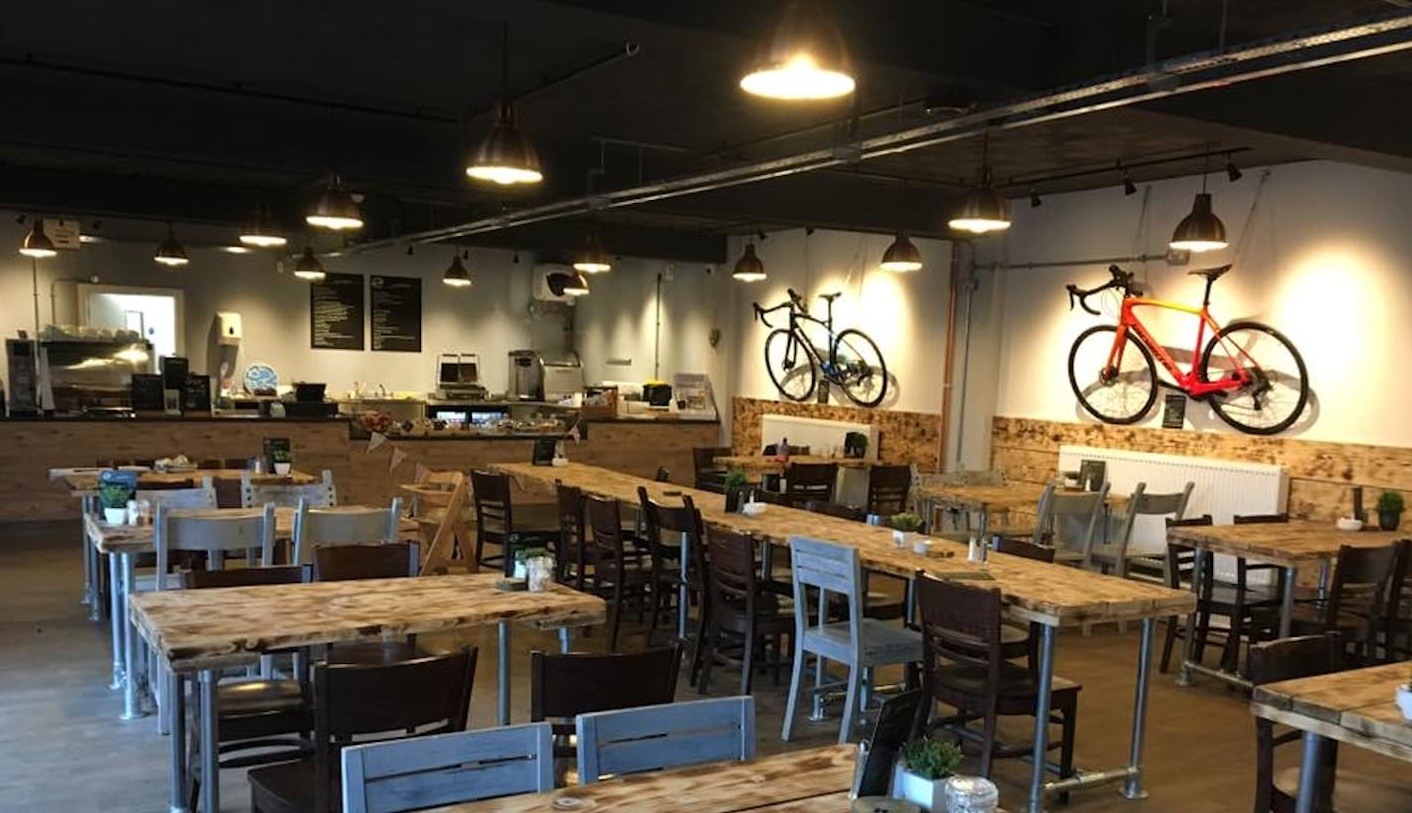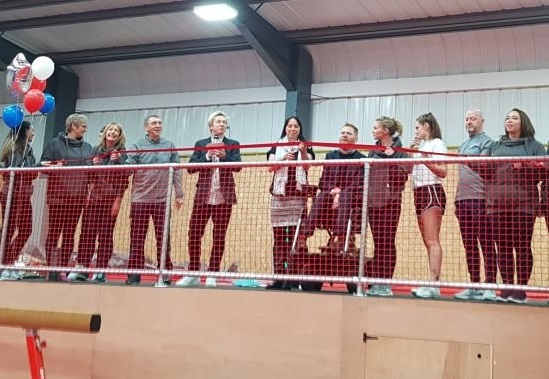2020 is set to be an exciting year for the UK’s Sport for Development movement as more and more organisations focus on the contribution that sport and physical activity can make to society.
Nowhere is that sense of momentum being more keenly felt than amongst the beneficiaries of the Sporting Capital fund, which has around £2million to invest in projects between now and the end of December 2020.
Sporting Capital, formed through a pioneering partnership between Sporting Assets and the Access Foundation; and is funded through the Big Lottery Fund and Big Society Capital. More than £1million of the £3m fund has already been distributed to a variety of projects across the country, and now the hunt is on to find more applicants over the next 12 months.
 “The clock is ticking - all investments need to be made by December 31st, 2020,” explains Jemma Leathley, who manages the fund on behalf of Sporting Assets.
“The clock is ticking - all investments need to be made by December 31st, 2020,” explains Jemma Leathley, who manages the fund on behalf of Sporting Assets.
“We’ve approved investment of over £1m so far, and we’ve got around £2m to invest between now and when the fund is due to finish.
IMPACT
“We’ve got a variety of projects coming through the pipeline - but it would be great to hear from more organisations across the spectrum, to see if we could invest in them.”
The fund works by providing simple unsecured loans of up to £150,000 to community organisations which use sport to deliver wider social impact. It is aimed at specifically supporting these organisations to become more financially sustainable by helping them to generate revenue and build a successful community business.
By doing this, it helps them to deliver a lasting impact for their communities.
Reviewing the projects which have already been supported, Jemma says: “We’ve invested in a wide range from a large Sport for Development charity through to gymnastics clubs, to the foundation of a Super League (rugby league) club and community organisations using sport and physical activity as a tool for social impact.
“Within that range of projects, we have supported different aspects. For example, we’ve invested in a capital facility project, and we’ve invested in helping people being able to take on staff for the first time - and now they’re using that freedom and support to grow their business models and become sustainable.
“We have no restrictions on what we can fund in this field. For example, organisations often ask us about supporting core costs. One of our investees, Hull FC Foundation, has used our investment to grow their workforce and giving them flexibility to secure new contracts and diversify their income streams.”
The sports sector has been slow to get involved in social impact investment, and Jemma understands there may be a sense of nervousness around the concept, especially amongst grassroots and community-based organisations. A crucial aspect here is the ‘wrap-around’ support which Sporting Assets provide in order to ensure that organisations feel “comfortable” throughout the journey.
She explains: “It’s an unsecured investment and therefore we don’t invest to put the organisations at risk.
STRATEGIC
“We try to make our loans and investments as flexible as possible to meet the needs of the organisation. We can provide payment holidays, we look at the rate and what the organisation can afford.
“Ultimately we won’t invest in anything that we don’t think can become sustainable. We spend a lot of time with organisations to get them through the process so they are investor ready. We’ve got an independent investment committee - who are really good at challenging projects - to help and add value so the investment does work when it goes in.
“We’ve been investing for a couple of years and, as an organisation, also been working in this space as an adviser for a lot longer. Sporting Assets has worked with organisations before the fund was set up, to help them with business models and strategic plans and understand what they could do to attract social investment. Now we can also invest in them.

“There are other social investors that operate in this space, but we’re the only one that is sport focused.”
With the clock ticking throughout 2020, Jemma is keen to reach out to more organisations to see if Sporting Capital can help them.
“We have tried to make the message really simple,” she says. “We’ve got money ready to invest - so come and talk to us. The clock is ticking.
“We can do more, and we’d like to do more, so if people are interested in exploring social investment then come and explore it with us.”
Five great examples of Sporting Capital projects:
Leeds Urban Bike Park – a £100,000 investment from Sporting Capital has helped to transform this former golf course in Middleton, Leeds into a world-class cycling facility that is used by the local community (shown above). Jemma says: “We enabled the owners to increase trading income from a café and a bike shop, and they reinvested the profits from that to work with other community groups to get them cycling and using the facility. The investment has also enabled them to move from a voluntary organisation with two volunteers to having 16 employees.”
Hull FC Foundation – an initial investment of £50,000 helped the Super League club’s charitable arm expand its schools programme, through increased staffing. The new activities and services directly increased the social impact the charity had in local areas whilst also generating new revenue streams to safeguard its future. This led to a further £90,000 investment last September which is being used to work with more young people, local fire, police and prison services and develop a new adult education offer. “The loan is flexible, we’re not funding a specific piece of work, we’re funding them as an organisation to grow and develop so they can become more sustainable.”

Tumble Gymnastics & Activity Centre, Newcastle – retired Olympic gymnast Craig Heap (above) is opening his first gymnastics and activity centre aimed at different generations. Jemma says: “We’re not only funding them to get more young people doing gymnastics - which is recognised as supporting the development of key foundation skills – but they are also going to have a fitness gym targeting local people who may be currently inactive. This will initially target parents who come in when their kids do gymnastics, providing a convenient and low-cost way to be active whilst also being onsite during their children’s sessions.”
Street League – “We’ve invested in Street League to help their mental health and wellbeing initiative,” explains Jemma. "The investment from Sporting Capital has allowed additional resources and capabilities to be brought into the charity to enable Street League to work with more young people and grow specifically the wellbeing services they offer. It has been used to support staff, technical skills and IT systems, supporting the financial resilience and safeguarding the work of Street League over the long term.”
Sporting Age – an innovative organisation that has established new software and stage appropriate lessons plans for PE delivery in primary schools to support the development of fundamental movement skills. “With Sporting Age we’ve provided working capital for a growing organisation to help them roll out their product to more geographies and support more primary pupils to gain core skills which will enable them to successfully engage in PE and sport, establishing a lifelong relationship with physical activity,” says Jemma. “The Sporting Age package is also designed to support teachers to deliver stage-appropriate lesson plans and accurate reporting, improving lessons and increasing confidence in the delivery of PE classes.”
Read more at sportingcapital.org.uk or follow @SportingCapFund on Twitter. Find out how to apply for investment here.













